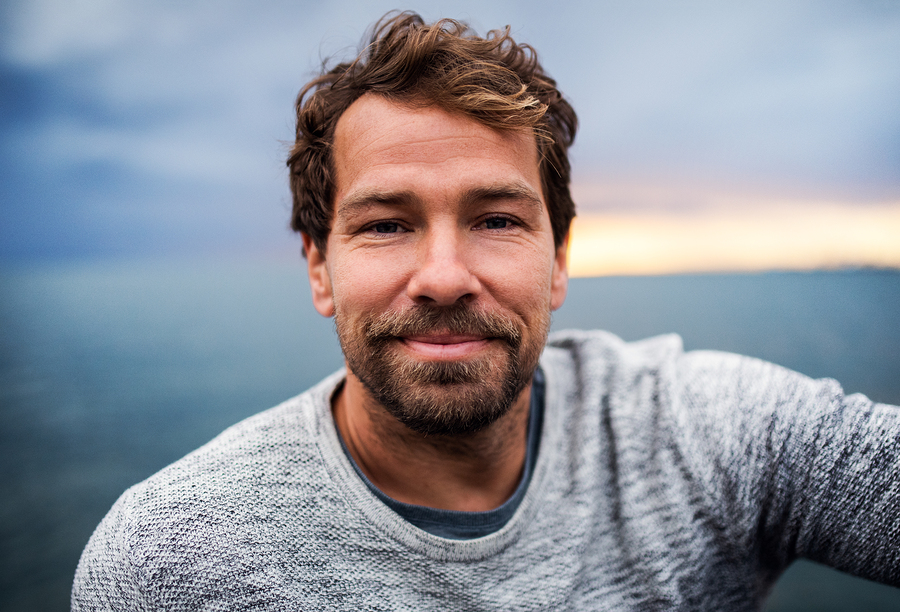
People suffering from anxiety are 2 to 3 times more likely to struggle with addiction. Since 18% of the American population is suffering from anxiety, it’s not surprising that many individuals in drug rehab have a co-occurring anxiety disorder. For this reason, drug rehab centers treat anxiety (and other mental illnesses) concurrently with the substance use disorder.
Here is what you need to know about the link between anxiety and substance use, and how it is treated in rehab centers.
The Link Between Anxiety and Substance Use
There are a number of reasons people suffering from anxiety start using substances. For people suffering from social anxiety disorder, alcohol and other substances give them confidence and lower their inhibitions. They may start using the substance in group settings or when they are afraid they won’t be able to speak to someone important.
In contrast, many people suffering from various forms of anxiety use drugs and alcohol to turn off their mind’s chatter. This is especially true for people suffering from obsessive-compulsive disorder (OCD), who struggle to find ways to quiet obsessive thoughts. However, it is often also the case for people with other forms of anxiety.
Since anxiety can lead to insomnia, as the individual struggles to shut down their mind despite being exhausted, some sufferers turn to drugs or alcohol to help get to sleep.
There are many avenues which lead people suffering from anxiety to substance abuse. How is anxiety treated in drug rehab centers?
Dual-Diagnosis
All good rehab centers take a dual-diagnosis approach to recovery. This means that they treat any co-occurring mental illnesses concurrently with the substance use disorder. As with anxiety, many other mental illnesses correlate with substance abuse, and in order to fully recover, patients need to treat both.
Therefore, anxiety treatment in a drug rehab center is given high priority. On some occasions, addiction treatment coincides with proven anxiety treatments.
When Anxiety and Addiction Treatment Intersect

Many common treatments for substance use disorder intersect with treatments for anxiety. Group therapy is a fundamental part of drug rehab. It gives residents the opportunity to voice their issues, rather than obsessing over them internally. The sense of community helps individuals know they are not alone, and the support reassures them.
Mindfulness training is also useful for both addiction and anxiety. Mindfulness techniques help individuals quiet their minds, letting the troubling thoughts come and go rather than holding onto them or trying in vain to get rid of them.
Individual Therapy
While every patient in a rehab center will receive individual therapy, it provides those suffering with anxiety to confront the problem head-on. In individual therapy, patients can focus on their own personal issues and not just their substance use. They work with the therapist to understand where their anxiety originated and identify the narratives that drive the anxiety. With this understanding, they can begin changing those narratives in a significant, paradigmatic way.
In addition, individual therapy gives the person the chance to learn specific techniques to deal with anxiety. Cognitive-behavioral therapy (CBT) is perhaps the most popular therapy used for treating anxiety in particular. In CBT, the individual learns to identify and challenge troubling thoughts. Often these thoughts are irrational, and challenging them brings this to light, helping the person let go of them. Even if the thoughts are rational, obsessing over them is often irrational and, with practice, the individual learns to let them go.
CBT provides a range of other techniques to manage anxiety. For example, some therapists recommend setting aside “worry time” to spend considering the anxious thoughts, while compartmentalizing them.
Medication
In many cases, psychiatrists will prescribe medication to help individuals manage their anxiety. Rehab centers have psychiatrists who specialize in dealing with addiction. This is important, considering many anti-anxiety medications are addictive. The benzodiazepine class in particular – including Xanax, Valium, Ativan, and other well-known tranquilizers – are known to build dependence.
Instead of prescribing these drugs, which are at best temporary solutions, psychiatrists in rehab centers will prescribe long-term alternatives. Seroquel can help with anxiety and depression, as well as facilitating better sleep. Antidepressants are proven to reduce anxiety. Your psychiatrist will have a wide range of knowledge about the best non-addictive chemical options to treat anxiety.
Occupational Therapy
The rehab center, or your individual counselor, may also provide occupational therapy. This is training that helps you in practical ways, such as creating structure, managing anxiety through day-to-day activities, practicing for job interviews, and much more.
The Importance of Dual-Diagnosis Treatment
 Rehab centers place a high importance on treating anxiety and other mental illnesses, as they can lead to rehab. If an individual’s drug use began as a way to deal with anxiety, they need to find adaptive ways of dealing with that anxiety, or drug use will be the most attractive option.
Rehab centers place a high importance on treating anxiety and other mental illnesses, as they can lead to rehab. If an individual’s drug use began as a way to deal with anxiety, they need to find adaptive ways of dealing with that anxiety, or drug use will be the most attractive option.
Anxiety disorders and substance use disorders are closely linked. Good drug rehab centers treat anxiety concurrently with addiction.
References:
- Anxiety and Depression Association of America. (2016). Substance Use Disorders
- Franken, I. H. and Hendriks, V. M. (2001), Screening and Diagnosis of Anxiety and Mood Disorders in Substance Abuse Patients. The American Journal on Addictions, 10: 30-39. doi:10.1080/105504901750160448
- Mancebo, M. C., Grant, J. E., Pinto, A., Eisen, J. L., & Rasmussen, S. A. (2009). Substance use disorders in an obsessive compulsive disorder clinical sample. Journal of anxiety disorders, 23(4), 429–435. doi:10.1016/j.janxdis.2008.08.008
- Blobaum P. M. (2013). Mapping the literature of addictions treatment. Journal of the Medical Library Association : JMLA, 101(2), 101–109. doi:10.3163/1536-5050.101.2.005
- Wendt, D. C., & Gone, J. P. (2017). Group Therapy for Substance Use Disorders: A Survey of Clinician Practices. Journal of groups in addiction & recovery, 12(4), 243–259. doi:10.1080/1556035X.2017.1348280
- Otte C. (2011). Cognitive behavioral therapy in anxiety disorders: current state of the evidence. Dialogues in clinical neuroscience, 13(4), 413–421
- Vasile, R. G., Bruce, S. E., Goisman, R. M., Pagano, M. and Keller, M. B. (2005), Results of a naturalistic longitudinal study of benzodiazepine and SSRI use in the treatment of generalized anxiety disorder and social phobia. Depress. Anxiety, 22: 59-67. doi:10.1002/da.20089